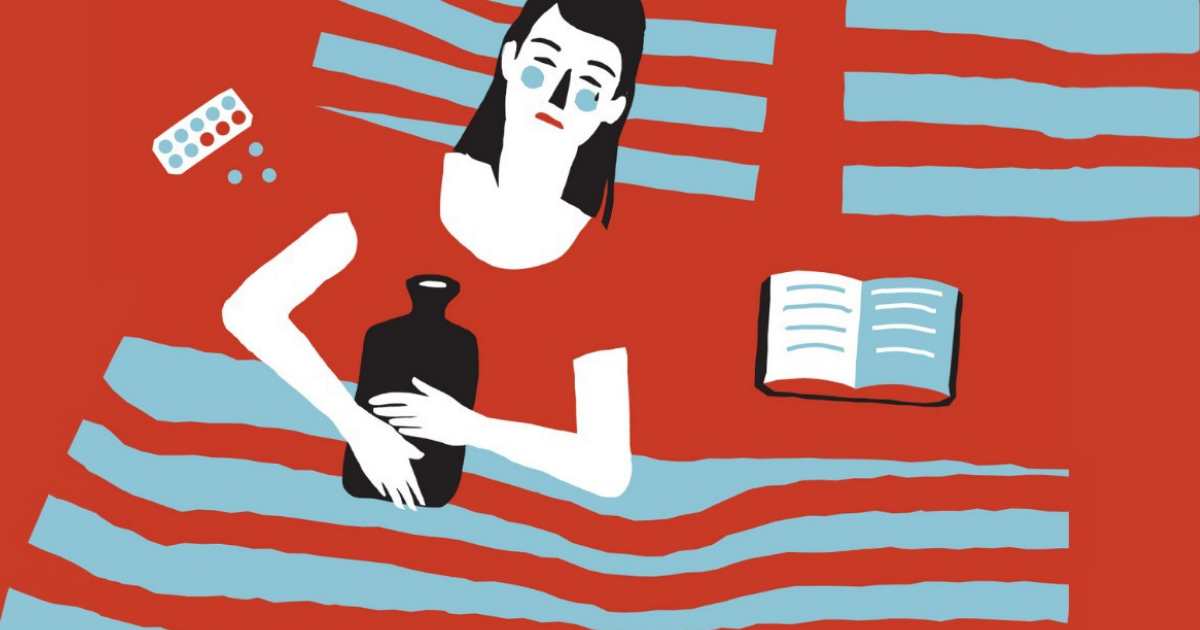Do you suffer from excruciating period pain every month knowing you just have to wait it out? Well, birth control is a solution you should definitely keep in mind!
What’s the science behind menstrual cramps?
It’s pretty much a known fact that period pain is no fun at all and most women are bound to experience it every month. Even then, women can have varying encounters with period cramps. While some regularly face this problem, some are lucky enough to rarely experience it. Of course, most of us may have gotten used to this cycle since our teenage years and it’s just something we accept as part of female reproductive life. But have you ever wondered why this monthly inconvenience comes with its own set of unpleasant characteristics?
Dysmenorrhea, also known as menstrual cramps, refers to the pain associated with your period. It is usually in the form of throbbing or cramp-like pains in the lower abdomen which occurs just before and during menstruation. There are two types of dysmenorrhea — primary and secondary.
Primary Dysmenorrhea
This is the most common type of period pain which most women experience and is not caused by another condition. Simply put, the pain is caused by the period itself. Approximately 50 to 90 percent of the female population suffer from primary dysmenorrhea and its effects are severe on 10 percent of women for one to three days a month.
During your menstrual period, the contraction of the uterus allows it to shed its lining. Yes, this is necessary and yet often painful. The pain is actually caused by hormone-like substances (prostaglandins) that are produced by the uterine lining cells which then circulate into your bloodstream. This ultimately triggers the tightening and relaxing of the uterine muscle and it is these contractions that cause cramps. Typically, higher levels of prostaglandins tend to lead to more severe menstrual cramps.
Secondary Dysmenorrhea
Apart from the common and tolerable pain most women suffer through during their period, some may have it worse due to certain medical conditions that intensify the pain. This usually starts later in life.
- Adenomyosis: a condition that causes the inner lining of the uterus to break into the uterus’ muscle walls
- Cervical stenosis: a smaller cervix opening can impede menstrual flow and lead to a painful increase of pressure within the uterus
- Endometriosis: the tissue lining the uterus grows outside the womb and on the fallopian tubes, ovaries or tissue lining the pelvis instead
- Pelvic inflammatory disease: sexually transmitted bacteria that infects the female reproductive organs
- Uterine fibroids: non-cancerous growths of the uterus
I’ve been thinking about going on the pill to help with the cramps.
If you’re already on birth control, you probably already know how fuss-free and effective it is in preventing pregnancy. But what about its other non-contraceptive benefits?
Hormonal birth control is one treatment method used to ease menstrual cramps. Primarily, oral birth control pills contain hormones such as estrogen and progestin which deter ovulation and the production of prostaglandins, thus lowering the severity of period pain.
A randomised controlled trial conducted in 2012 revealed the effectiveness of taking combination birth control pills cyclically (21 days with active pills followed by seven days of placebo) and those taken continually. The latter involves the continuous administration of active pills during all 28 days, without any placebo at all. As continuous OCP means that users only take the hormone pills and skip the inactive pills, they forgo the monthly bleeding altogether. Both methods were successful in treating primary dysmenorrhea.
Alternatively, other birth control methods such as patches, the ring, intrauterine devices and implants are also able to alleviate cramps, and even cause periods to become lighter and more predictable.
By using these prescribed birth control methods, you can also safely skip your periods altogether. To postpone or skip your period, you should immediately start on a new pack of active pills right away without taking the sugar pills (inactive pills).
It’s best to speak with a doctor before trying any new birth control methods or making major adjustments.
But I’m worried, will there be any side effects?
For first-timers on the pill, don’t worry! It’s natural for your body to take time to adapt to the hormonal changes.
Some women may still temporarily experience discomfort and period-like symptoms at the start. Symptoms such as cramping and spotting may arise if you forget to take your birth control pill.
How we can help
There are different types of birth control for different requirements. If you’re looking to speak with a healthcare professional on coping with menstrual cramps or dysmenorrhea, feel free to talk to one of Siena’s female-only doctors now!
References:
- Dmitrovic, R., Kunselman, A.R., and Legro, R.S. (2012). Continuous Compared With Cyclic Oral Contraceptives for the Treatment of Primary Dysmenorrhea. Obstetrics & Gynecology, 119(6), 1143-1150.
- Mayo Clinic. (2020, April 8). Menstrual Cramps. https://www.mayoclinic.org/diseases-conditions/menstrual-cramps/symptoms-causes/syc-20374938.
- Planned Parenthood Federation of America. (n.d.) What are the disadvantages of the pill? https://www.plannedparenthood.org/learn/birth-control/birth-control-pill/what-are-the-disadvantages-of-the-pill.
- Stacey, D. (2020, September 12). Can Birth Control Be a Dysmenorrhea Treatment? Verywell Health. https://www.verywellhealth.com/dysmenorrhea-treatment-using-birth-control-pills-906489.
- U.S. National Library of Medicine. (2021, May 7). Period Pain. MedlinePlus. https://medlineplus.gov/periodpain.html.
